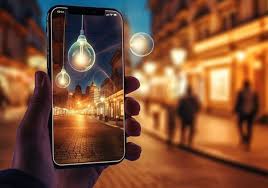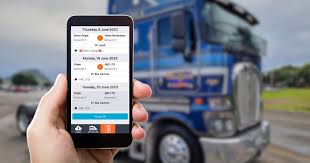Water conservation apps with drought alerts from mobile app developers in Dallas

Climate change isn’t just about rising sea levels or melting glaciers—it’s also drying up rivers, shrinking reservoirs, and triggering historic droughts. States like Texas are no strangers to water crises. But where policy may lag, technology is stepping in.
This is where mobile app developers in Dallas are making a splash—by creating smart water conservation apps equipped with real-time drought alerts, usage tracking, community incentives, and IoT integration. And they’re not working alone—many are backed by top-tier software development companies with deep environmental tech experience.
Let’s explore how these apps work, what makes them game-changers, and how Dallas’s tech talent is helping households, farmers, and cities save every precious drop.
Why Water Conservation Apps Matter More Than Ever
The Rising Pressure on Water Systems
Dallas and other parts of Texas are experiencing more frequent droughts. Urban sprawl, industrial demands, and erratic rainfall are stressing reservoirs and aquifers. The result? Water restrictions, price hikes, and public panic.
Traditional conservation campaigns—posters, mailers, radio ads—are often too slow, too broad, or too forgettable. But mobile apps can offer real-time insights and personalized alerts, right in your pocket.
Empowering Users Through Smart Data
Water conservation apps use data to empower—not nag—users. By tracking water consumption at the household or farm level, these apps help people understand their patterns, set goals, and even earn rewards for saving.
What Makes a Great Water Conservation App?
Let’s break down the key features that the best apps—especially those developed by mobile app developers in Dallas—are offering:
1. Real-Time Drought Alerts
Apps now use geolocation and real-time climate APIs to notify users when their region is entering a drought phase. Push notifications might say, “Stage 2 water restrictions in effect. Here’s what you can do.”
This instant feedback loop helps people act before things get worse.
2. Personalized Water Usage Tracking
Think of this as a Fitbit for your faucet. Using smart meter integrations or manual input, users can view daily, weekly, or monthly usage—and compare it against community averages.
Some apps gamify it—challenging neighbors to beat each other in water-saving streaks.
3. Smart Irrigation Scheduling
Especially useful in suburban and rural areas, smart irrigation features adjust watering times based on local weather forecasts, soil moisture data, and time-of-day rules.
Mobile app developers in Dallas are even integrating with IoT soil sensors to fine-tune watering to the inch.
4. Reward Systems and Social Challenges
Many apps developed by innovative software development companies now include in-app rewards—coupons, bill credits, or donations to clean water projects—for meeting conservation goals.
Community leaderboards turn conservation into a social movement.
Real-World Examples of Dallas Tech in Action
Let’s look at how mobile app developers in Dallas are building these tools:
AquaAware – A Dallas-Born Conservation App
Developed by a local mobile app development company in Dallas, AquaAware gives users hyper-local drought alerts and connects directly with Dallas Water Utilities data.
Features include:
-
Leak detection using smart meter spikes
-
Neighborhood-based conservation challenges
-
Alerts when water usage spikes suddenly
The app has already helped over 100,000 Dallas households reduce their water usage by up to 22% in one year.
Irrigo – Smart Farming App with Drought Monitoring
Designed for North Texas farmers, Irrigo uses satellite drought indices, weather APIs, and soil moisture sensors to optimize irrigation schedules. It was built by a coalition of software development companies and Dallas agritech startups.
Farmers have reported up to 40% reduction in water use, without sacrificing yield.
The Role of Mobile App Developers in Dallas
Why Dallas? A Hub for Green Innovation
Dallas isn’t just about finance and real estate—it’s also a rising tech ecosystem with a sharp focus on sustainability. Local developers are combining AI, IoT, and clean data to create digital tools for environmental resilience.
Mobile app developers in Dallas often work closely with:
-
Local government bodies (e.g., Dallas Water Utilities)
-
Universities like UT Dallas
-
NGOs focused on sustainable urban planning
The result is a unique collaboration between public, private, and academic sectors.
UI/UX with a Purpose
Developers in Dallas understand that the success of conservation apps depends on usability. It’s not just about tech—it’s about designing interfaces that motivate behavior change.
From color-coded water meters to calming alerts and user-friendly dashboards, they build apps that are intuitive, beautiful, and actionable.
Software Development Companies Powering This Shift
The Backend Heroes
While mobile developers build the front-end, robust software development companies in Dallas and beyond are creating the back-end infrastructure:
-
Secure cloud storage for usage data
-
Real-time drought data ingestion
-
Machine learning models that predict overuse
These companies ensure that water conservation apps run smoothly, scale fast, and stay safe.
Custom APIs and Government Integrations
Software development companies also build custom APIs to connect apps with government dashboards, like the Texas Drought Monitor, municipal water usage stats, or local ordinances.
These integrations make the apps contextually intelligent—users get alerts and advice that’s truly relevant.
Future Trends: What’s Next for Water Conservation Tech?
AI-Driven Predictions
Imagine an app that tells you:
“You’re on track to exceed your water budget next week. Reduce lawn watering by 3 minutes/day.”
AI models trained on your habits, local weather, and seasonal changes can offer these insights.
Integration with Smart Homes
Soon, your conservation app might control your smart irrigation, washing machine, or shower timer—automating conservation without losing convenience.
Mobile app developers in Dallas are already working with smart home ecosystems like Google Nest and Amazon Alexa to make this a reality.
Blockchain-Based Water Credit Systems
Using blockchain, future apps may let users earn, trade, or donate water credits—turning conservation into an economic game.
This could revolutionize how communities incentivize and enforce sustainable behavior.
Challenges Still on the Horizon
Data Privacy
Water usage is personal. Where are users’ data stored? Who owns it? Will it be sold?
Software development companies must ensure strong encryption, transparent policies, and full user control to maintain trust.
Digital Divide
Not everyone has a smartphone or access to smart meters. Developers must find creative ways—like SMS alerts or community kiosks—to include rural and underserved populations.
Conclusion: Tech with a Heart for the Planet
Water is life. And in the face of climate change, we can’t afford to waste it.
Thanks to the work of mobile app developers in Dallas and forward-thinking software development companies, digital tools are turning everyday citizens into water stewards. These apps don’t just track—they teach, nudge, and empower people to change.
As technology evolves, and as more cities face water stress, these apps will only become more important. Dallas is leading by example, and the ripple effect is spreading.
So the next time you get a drought alert on your phone, remember—it’s not just a warning. It’s a call to action. One that begins with a tap.





